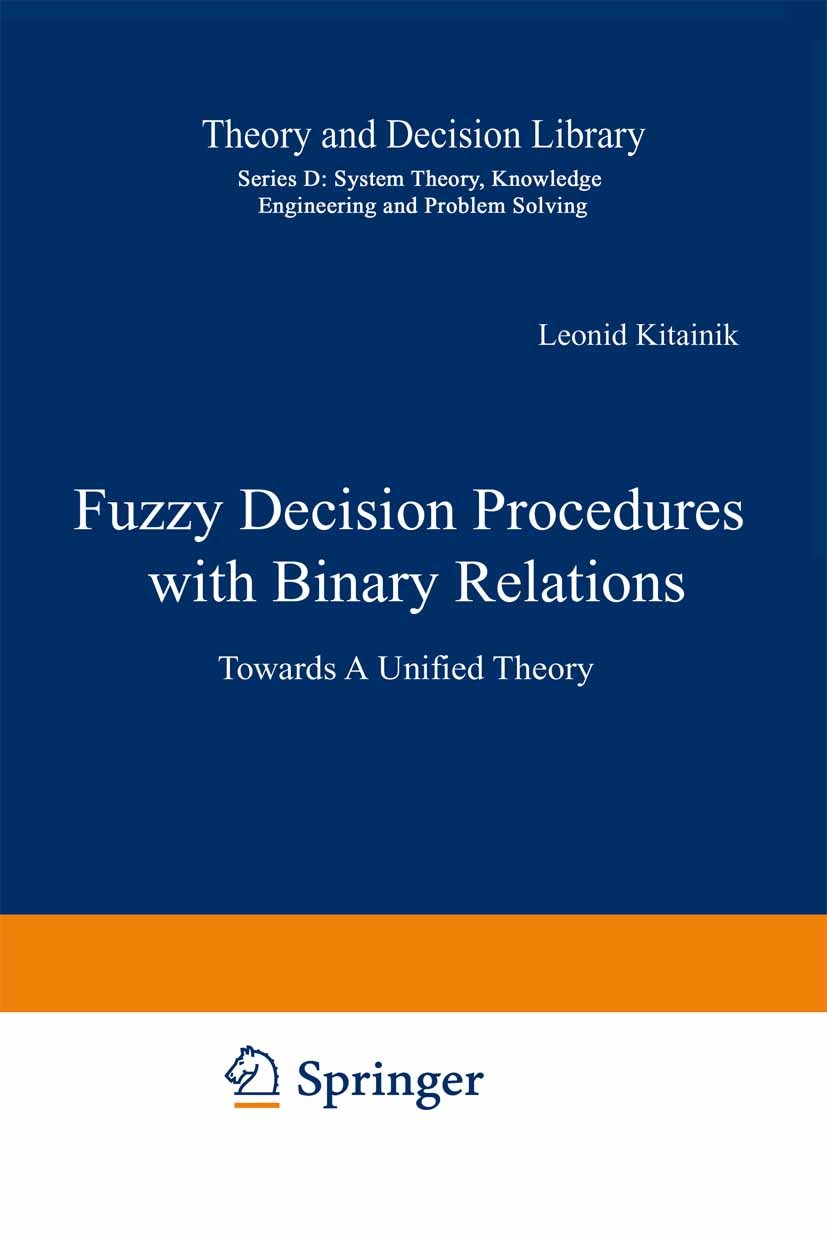| 书目名称 | Fuzzy Decision Procedures with Binary Relations | | 副标题 | Towards A Unified Th | | 编辑 | Leonid Kitainik | | 视频video | http://file.papertrans.cn/352/351200/351200.mp4 | | 丛书名称 | Theory and Decision Library D: | | 图书封面 |  | | 描述 | In decision theory there are basically two appr~hes to the modeling of individual choice: one is based on an absolute representation of preferences leading to a ntDnerical expression of preference intensity. This is utility theory. Another approach is based on binary relations that encode pairwise preference. While the former has mainly blossomed in the Anglo-Saxon academic world, the latter is mostly advocated in continental Europe, including Russia. The advantage of the utility theory approach is that it integrates uncertainty about the state of nature, that may affect the consequences of decision. Then, the problems of choice and ranking from the knowledge of preferences become trivial once the utility function is known. In the case of the relational approach, the model does not explicitly accounts for uncertainty, hence it looks less sophisticated. On the other hand it is more descriptive than normative in the first stand because it takes the pairwise preference pattern expressed by the decision-maker as it is and tries to make the best out of it. Especially the preference relation is not supposed to have any property. The main problem with the utility theory approach is the ga | | 出版日期 | Book 1993 | | 关键词 | DEX; Invariant; decision making; decision support; decision support system; efficiency; fuzzy; fuzzy set; lo | | 版次 | 1 | | doi | https://doi.org/10.1007/978-94-011-1960-3 | | isbn_softcover | 978-94-010-4866-8 | | isbn_ebook | 978-94-011-1960-3 | | copyright | Springer Science+Business Media New York 1993 |
The information of publication is updating

|
|
 |Archiver|手机版|小黑屋|
派博传思国际
( 京公网安备110108008328)
GMT+8, 2025-12-28 23:11
|Archiver|手机版|小黑屋|
派博传思国际
( 京公网安备110108008328)
GMT+8, 2025-12-28 23:11


